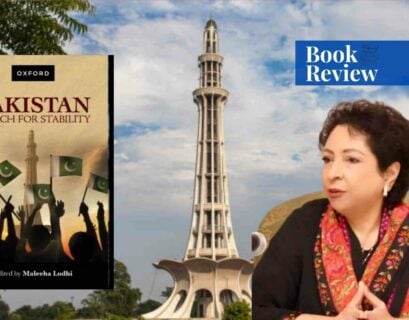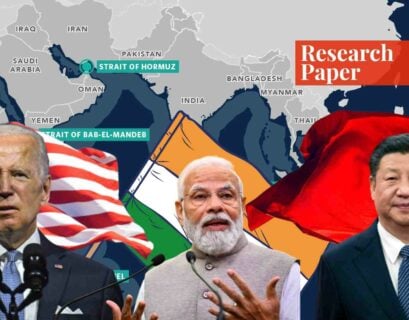Ms Gul Afsha Ahmed is currently pursuing a degree in Public Administration from NUST.
Introduction
The declassified documents in the National Security Archive were an initiative started by the Obama government as an executive order in 2009. The order entailed various guidelines to manage classified information within government structures. The declassification was not only a government initiative but an opportunity for various students of subjects like politics, diplomacy, history, and journalism to study all those historic timelines with a clearer and more in-depth insight into the chronological timelines of all those hidden details.
One of the most interesting finds of such archives is how the United States has dealt with other nations, particularly under turbulent circumstances. The most pertinent of these relations is in the 1970s with the military dictatorship in Argentina. The archive under discussion elaborates how an extreme case of human rights violations, civil unrest, political turmoil, and thin global relations was overseen by the American government of the time.
Military Coup in Argentina
After a turbulent era of political unrest throughout the country, the military junta or coalition led by General Jorge Rafael Videla Rodando took over the state by staging a violent coup. Of course, this was the final stage in the plan that was set in motion a few years ago, when Videla’s subordinates arranged for most opposition leaders to be removed from the race by killing them off.
All these killings were just a trailer for what was about to come after when almost thirty thousand people were documented missing throughout the five years of military rule. The dictatorial government did not deny these activities on any front but called them the “Dirty War,” which was a war not with an enemy from outside, but with the Argentinian people themselves.
The whole movement was called “El Proceso” wherein the government would pick up anyone it suspected to be conspiring against them, siding with any leftist groups or anyone still opting or believing in communist or socialist ideologies, and proceed to torture them to extort information before finally killing them. These missing individuals were never documented by the government, so they could go on pretending that these people never existed, but it was the foreign embassies who kept count of these Desaparecidos.
Kissinger Enters
The account of these atrocities was a part of the six-page article sent back from Buenos Aires to the State Department in 1980. After the clear and blatant violations of human rights in Argentina, where people were being treated as pawns, the American government needed to intervene. Unfortunately, the former Secretary of State passed a remark that was mistakenly or consciously misunderstood.

Henry Kissinger was somehow known to be colluding with the Carter administration’s efforts to mediate the human rights crisis in Argentina. This was proven by the declassified documents of Confidential Cable of June 27, 1978, which highlighted Kissinger’s visit to Argentina. His praise for the military dictatorship brought fear within the administration that it was leaving space to allow further bloodshed in the country.
Henry Kissinger was of the view that the problems faced by Argentina were of a type the American government and people could not comprehend living in an ideal country. He played a huge role in aiding the military junta way before it came to power when he supported a grant of $50,000,000 for security assistance for the junta approved by Congress on behalf of the Ford administration.
Kissinger wanted to keep the terms cordial based on his ties with the regime in Argentina, so quiet diplomacy was maintained. The Carter administration, on the other hand, had a policy for foreign policy goals of their own. Thus, the government relied on silent but public diplomacy to mediate the human rights situation in Argentina.
Carter Administration Uses Quiet Diplomacy
Quiet diplomacy is exercised by refraining from taking extreme measures or action against the involved party or the use of secret negotiations with the next country to avoid public attention. Another name for this diplomacy is “backdoor” diplomacy. Carter was condemned and called out for not publicly calling out the military junta for its atrocities despite being in a powerful position and his rhetoric of human rights policy.
The Congress itself was divided into two thoughts about the policy; one where the members believed that the policy should be implemented without regard for national security, beyond regard for international relations as in toto, but the other half believed that the foreign policies should be considered where the anti-communist perspective of the military regime should be used as a tool against the Soviet Union.
Thus, the administration decided to deal with the situation out of the public eye to evade any assumptions on both sides of the ordeal. Even if President Jimmy Carter failed to raise the issue in a more public setting, he had directly raised the issue with General Videla in the privacy of the room i.e., behind the cameras.
The United States somehow managed to mediate the whole human rights crisis by exercising smart but quiet diplomacy, which is proven by several reduced political prisoners throughout the years of Carter’s presidency.
Robert Pastor, a member of the National Security Council staff, took it on his own accord to stop Kissinger from making a pro-military junta speech that would have undermined all efforts to mediate the political prisoners’ situation. The speech was more set against the human rights policy that Carter’s foreign policy backed and more in favor of what the Argentinian dictatorship was doing. Pastor averted what could have been a plausible condemnation of human rights violations on a public platform that could have allowed for more licensed bloodshed.
The importance of quiet diplomacy in this situation is key since a government that does not care for human rights already, cannot be risked being further aggravated. The military junta used the term “National Reorganization Process” or “Proceso” to justify its atrocities as a mechanism to reform the pure form of Western civilization, one devoid of any leftist ideas or non-coherent groups of people.
The military regime could not be openly criticized because the people in Argentina did not seem to consider it wholly wrong; most of them believed it to be the only reasonable choice after instability led people to lose faith in the whole ideology behind democracy.
Eventually, in 1980, the US diplomats sent a telegram expressing their dismay at the continuity of the disappearances by the military just because they seemed to work in their favor. The persons were tortured for information and then murdered without any court charge. The number of missing persons had reduced during the Carter government, but it was evident that the government had failed to fight the entire issue of human rights violations with its weak foreign policies that needed bureaucratic support.
The approach of the foreign relations department in Carter’s government was not a faulty one, it just proved to be an impractical one. On paper, the approach of quiet diplomacy looked like the right one, but unfortunately forcing a military regime to stop acts that constituted terrorism required a definitive form of force.
This just goes to show how any kind of diplomatic effort will be rendered useless unless supported by structural factors and administration completely or at least resource-wise. Hence, even silent diplomatic efforts need media and public applause, and most well-meaning intentions require solid foundations of support to work out.
If you want to submit your articles, research papers, and book reviews, please check the Submissions page.
The views and opinions expressed in this article/paper are the author’s own and do not necessarily reflect the editorial position of Paradigm Shift.



















